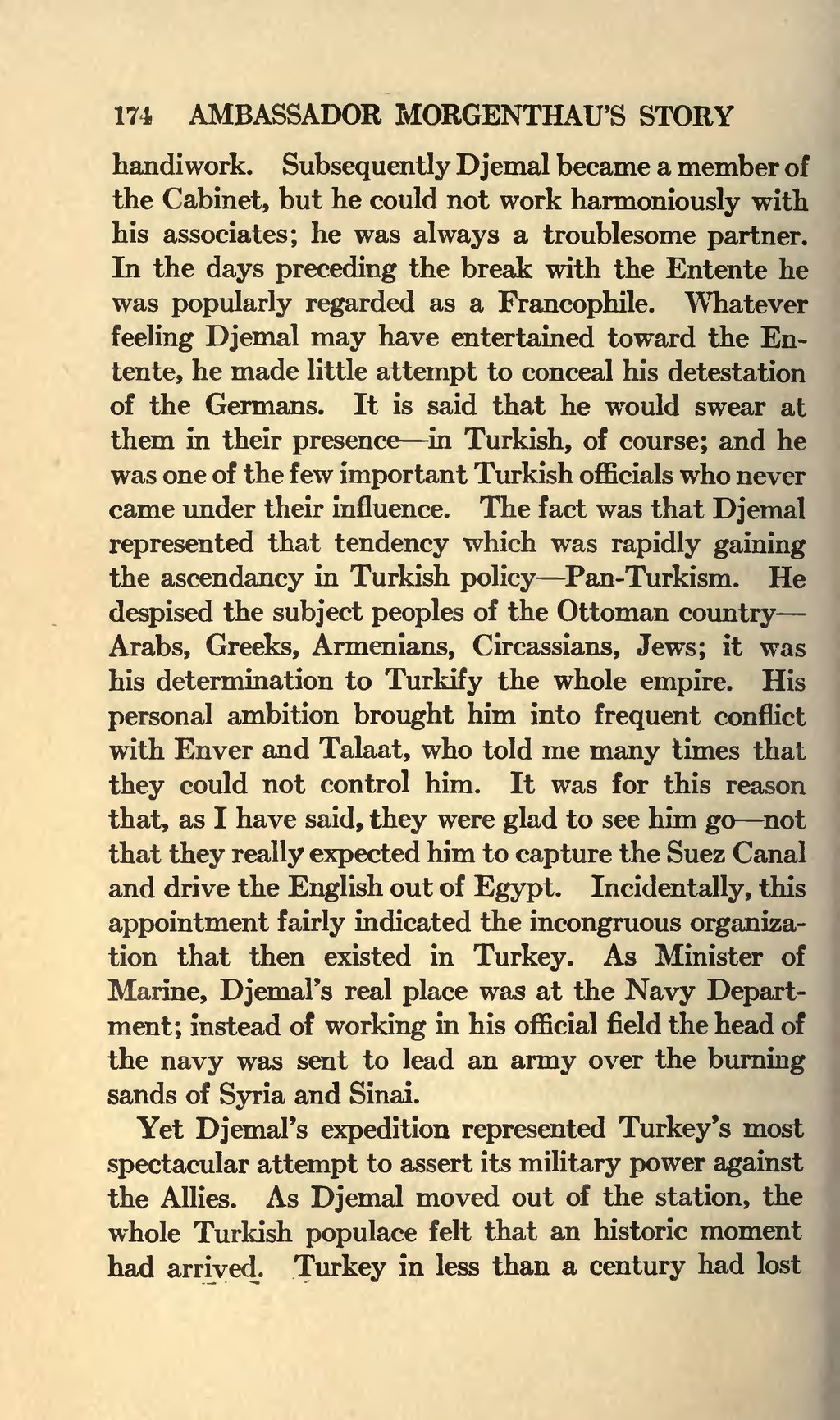handiwork. Subsequently Djemal became a member of the Cabinet, but he could not work harmoniously with his associates; he was always a troublesome partner. In the days preceding the break with the Entente he was popularly regarded as a Francophile. Whatever feeling Djemal may have entertained toward the Entente, he made little attempt to conceal his detestation of the Germans. It is said that he would swear at them in their presence — in Turkish, of course; and he was one of the few important Turkish officials who never came under their influence. The fact was that Djemal represented that tendency which was rapidly gaining the ascendancy in Turkish policy — Pan-Turkism. He despised the subject peoples of the Ottoman country — Arabs, Greeks, Armenians, Circassians, Jews; it was his determination to Turkify the whole empire. His personal ambition brought him into frequent conflict with Enver and Talaat, who told me many times that they could not control him. It was for this reason that, as I have said, they were glad to see him go — not that they really expected him to capture the Suez Canal and drive the English out of Egypt. Incidentally, this appointment fairly indicated the incongruous organization that then existed in Turkey. As Minister of Marine, Djemal's real place was at the Navy Department; instead of working in his official field the head of the navy was sent to lead an army over the burning sands of Syria and Sinai.
Yet Djemal's expedition represented Turkey's most spectacular attempt to assert its military power against the Allies. As Djemal moved out of the station, the whole Turkish populace felt that an historic moment had arrived. Turkey in less than a century had lost

